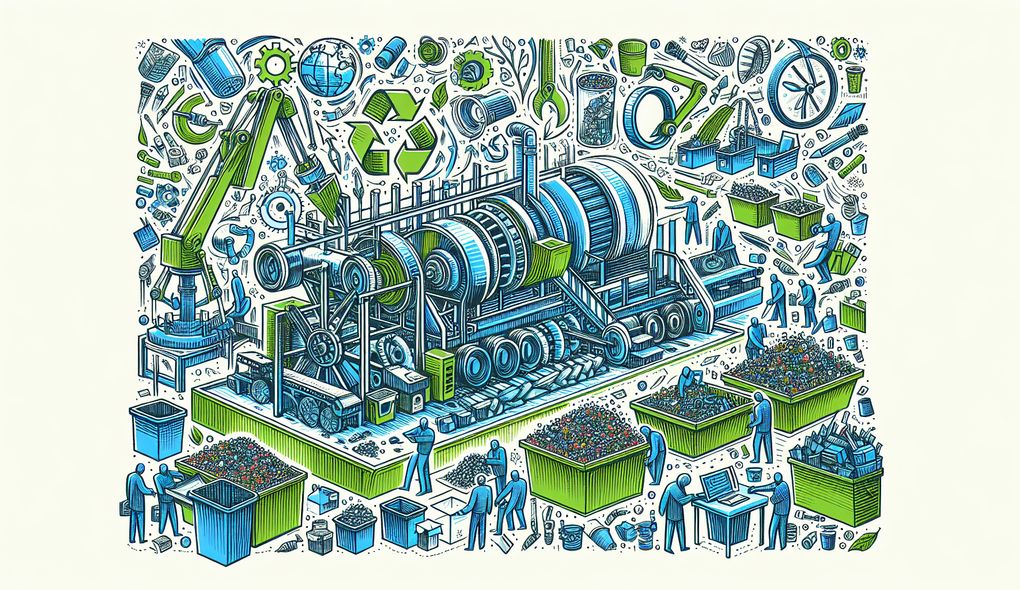How do you ensure that your recycling innovation projects are financially viable and sustainable in the long-term?
SENIOR LEVEL

Sample answer to the question:
To ensure that my recycling innovation projects are financially viable and sustainable in the long-term, I conduct thorough financial analysis and feasibility studies before embarking on any project. This includes evaluating the potential revenue streams and cost savings that the project can generate. I also collaborate closely with the finance department to develop accurate financial models and projections. Additionally, I prioritize projects that have a strong business case and align with the organization's overall sustainability goals. Lastly, I continuously monitor the performance of ongoing projects to identify any financial risks or opportunities for improvement.
Here is a more solid answer:
To ensure the financial viability and long-term sustainability of my recycling innovation projects, I have developed a comprehensive approach. Firstly, I conduct a thorough financial analysis, evaluating the potential return on investment, cost savings, and revenue streams. This includes researching market demand, estimating production costs, and identifying potential funding sources such as grants or partnerships. Secondly, I prioritize projects with a strong business case and a positive environmental impact, aligning with the organization's sustainability goals. I consider the life cycle assessment (LCA) and eco-design principles to ensure the environmental sustainability of the project. Thirdly, I collaborate closely with the finance department to develop accurate financial models and projections, avoiding any financial risks or uncertainties. Lastly, I continuously monitor the performance of ongoing projects, identifying any financial challenges or opportunities for improvement. By leveraging my financial expertise, sustainability knowledge, and collaboration skills, I ensure that my recycling innovation projects are both financially viable and sustainable in the long-term.
Why is this a more solid answer?
The solid answer expands upon the basic answer by providing specific details and examples. It addresses the evaluation areas of financial analysis, sustainability, project evaluation, and collaboration more comprehensively. However, it could still benefit from further elaboration and examples.
An example of a exceptional answer:
Ensuring the financial viability and long-term sustainability of recycling innovation projects requires a multifaceted approach. Firstly, I conduct detailed financial analyses, considering factors such as return on investment, payback period, net present value, and break-even analysis. I also assess the project's potential revenue streams, including product sales, recycling fees, and government incentives. Moreover, I develop comprehensive business plans, outlining the project's market potential, competitive advantage, and scalability. Secondly, I prioritize projects based on their environmental and social impact. I apply life cycle assessment (LCA) and eco-design principles to evaluate the project's environmental footprint and explore opportunities for waste reduction and resource efficiency. Thirdly, I proactively collaborate with cross-functional teams, involving finance, operations, and marketing departments in project evaluation and decision-making processes. This ensures that financial considerations are integrated into the project's design and implementation. Additionally, I foster partnerships with external stakeholders, including manufacturers, suppliers, and environmental organizations, to access funding, expertise, and market opportunities. Finally, I establish performance indicators and monitoring systems to track the project's financial and environmental performance. By continuously evaluating project outcomes, identifying areas for improvement, and making data-driven decisions, I ensure the long-term financial viability and sustainability of recycling innovation projects.
Why is this an exceptional answer?
The exceptional answer goes above and beyond by providing a highly detailed and comprehensive response that addresses all evaluation areas in greater depth. It demonstrates a strong understanding of financial analysis, sustainability, project evaluation, and collaboration. It also includes specific techniques and strategies, showcasing the candidate's expertise and experience. However, it could be further enhanced by including more specific examples and quantifiable achievements.
How to prepare for this question:
- Familiarize yourself with financial analysis techniques such as return on investment, payback period, net present value, and break-even analysis.
- Research and stay up-to-date with industry trends, regulations, and best practices in sustainability and waste management.
- Reflect on your past recycling innovation projects and identify their financial and sustainability outcomes. Prepare specific examples and achievements to showcase during the interview.
- Review the organization's sustainability goals and objectives. Be prepared to discuss how your recycling innovation projects align with these goals.
- Practice discussing your collaboration and communication skills, highlighting experiences working with cross-functional teams and external stakeholders.
- Consider the potential challenges and risks associated with recycling innovation projects and think about how you would address them.
- Think about how you would measure the financial performance and environmental impact of your recycling innovation projects, and be prepared to discuss the monitoring and evaluation processes you have implemented in the past.
What are interviewers evaluating with this question?
- Financial analysis
- Sustainability
- Project evaluation
- Collaboration

